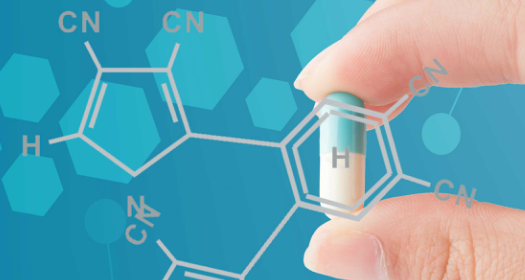PharmaSources/CaicaiJuly 24, 2019
Tag: Generic , MS , Approval , NMPA
According to the official website of the NMPA, the handling status of fingolimod’s marketing application has changed to "under approval", which is likely to be marketed this month.
Fingolimod is a new immunosuppressant developed by Novartis, A blockbuster in the MS area.

Only 2 MS drugs in China
MS is an autoimmune disease with the main characteristic of protein inflammatory demyelinating disease of the central nervous system (CNS). There are about 2.50 million people affected by MS in the world, mainly the population aged 20-40, with the number of female patients twice that of male patients. The cause is unknown and generally considered to be relating to inheritance, environment, and autoimmunity, etc.
MS is divided into 4 subtypes, with each having their characteristics.
Subtype | Characteristic |
RRMS | More than 80% newly diagnosed patients belong to RRMS; RRMS patients have defined recurrent clinical events and then experience a complete or partial remission for months or years until next recurrent events |
Secondary progressive MS (SPMS) | If untreated, about 40% RRMS patients will become SPMS patients, accompanied by the increase of the disability degree and reduction of the remission event frequency |
Primary progressive MS (PPMS) | PPMS occurs in about 10% MS patients; there is no defined boundary between the relapsing period and remitting period. PPMS is a very malignant disease and there had been no progress of treatment for dozens of years until the occurrence of ocrelizumab (trade name: Ocrevus) |
Progressive-relapsing MS (PRMS) | PRMS is characterized by clear disease progression and acute relapsing |
(Sorted out according to public data)
There is still no effective therapy to cure MS, and the treatment is still based on disease-modifying therapy (DMT) clinically. Drugs for MS are mainly divided into immunomodulator, immunosuppressor, and anti-inflammatory agent.
According to the Rare Disease Diagnosis and Treatment Guidelines and the public data of the international MS community, there have been 16 MS drugs marketed so far. IFNβ and glatiramer acetate (trade name: Copaxone) are first-line therapies for relapsing MS, administered by subcutaneous injection or intramuscular injection. Natalizumab (trade name: Tysabri) and mitoxantrone (trade name: Novantrone) are mainly used as second-line therapies that shall be administered by intravenous drip with the help of professional medical personnel.
Patients have strong demands for oral drugs of MS as it is a chronic disease that requires long-term medication. There is a total of 3 oral MS drugs marketed in the world, separately Fingolimod Hydrochloride (trade name: Gilenya), Teriflunomide (trade name: Aubagio), and Dimethyl Fumarate (trade name: Tecfidera).
Pharmaceutical product name | Trade name | FDA approval time | NMPA approval time | Indication |
Fingolimod | Gilenya | Sep. 2010 | / | RRMS |
Teriflunomide | Aubagio | Sep. 2012 | July 2018 | RRMS |
Dimethyl Fumarate | Tecfidera | Mar. 2013 | / | RRMS |
(Source: FDA, NMPA)
According to the Report on the Survival of Multiple Sclerosis Patients (2018) issued by the Chinese Society of Neurology, there are only two MS drugs approved for marketing in China, separately being the interferon beta-1a and teriflunomide, therefore, patients have quite heavy medical burdens. Please read the relevant article of this official account "Fewer Drugs, More Burdens: An Analysis of the Treatment Status of Multiple Sclerosis Patients in China" for more information. Get more information on Pharmasource, a professional pharma platform providing information and pharma manufacturers in China.
Clinically imperative new drugs marketed
MS has been listed among the First List of Rare Diseases of China in May 2018 and fingolimod has been listed among the list of 48 clinically imperative new drugs that are marketed overseas issued by the CDE in August of the same year.
Novartis’ second-generation MS drug: siponimod
Novartis has developed the second-generation MS drug: siponimod (code: BAF312) due to the adverse reactions of fingolimod, and has filed the marketing application therefor to the NMPA this February which was 2 months earlier than the filing for fingolimod, however, the approval time of siponimod is likely to be later than that of fingolimod.
Generic drugs not to be taken lightly
There is still no Gilenya generic drug marketed in China, however, Huahai’s fingolimod has received the U.S. FDA’s tentative approval in 2017, making its marketing in China easy to accomplish. Therefore, after marketing, fingolimod will be faced with competition from competitive drugs of its class and also much resistance from generic drugs in the future.
Related News:
A Blockbuster to Arrive in the Multiple Sclerosis Area of China!
Caicai, a Master of Pharmacy from Shanghai Jiaotong University, used to work in the Institute of Science and Technical Information. Currently as a practitioner in the drug surveillance system, she is good at interpreting industry regulations, pharmaceutical research developments, etc.
-----------------------------------------------------------------------
Editor's Note:
If you have any suggestion to the content,
please email: Julia.Zhang@ubmsinoexpo.com


Contact Us
Tel: (+86) 400 610 1188
WhatsApp/Telegram/Wechat: +86 13621645194
Follow Us:




 Pharma Sources Insight January 2025
Pharma Sources Insight January 2025


